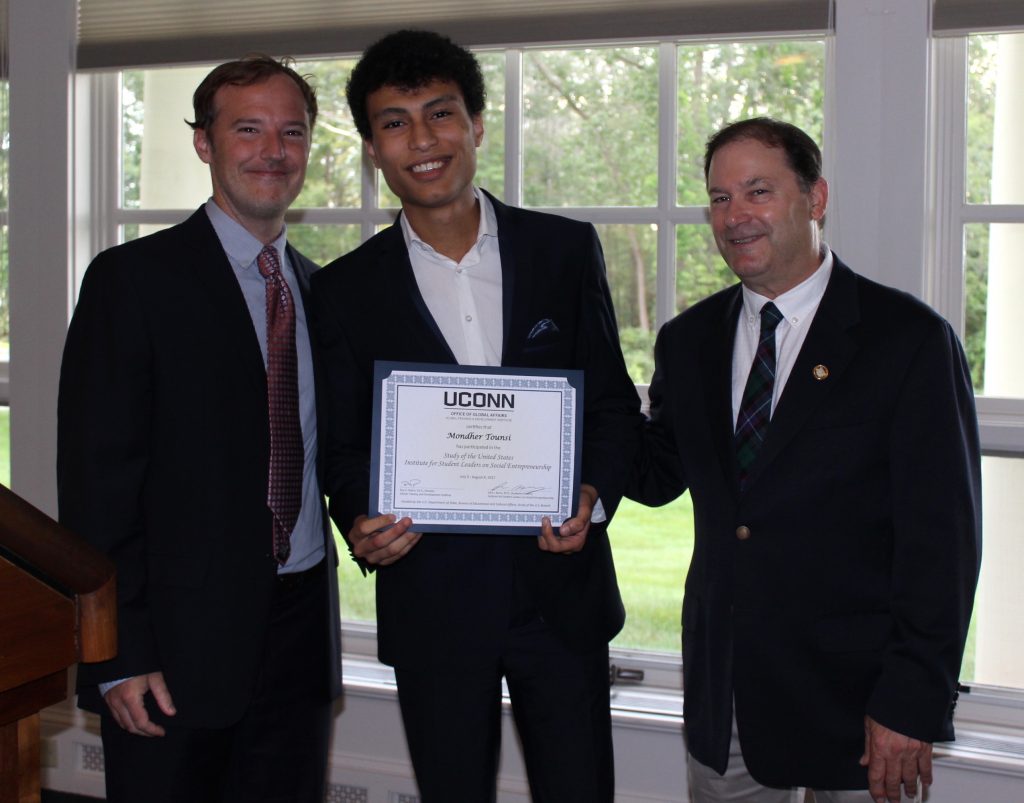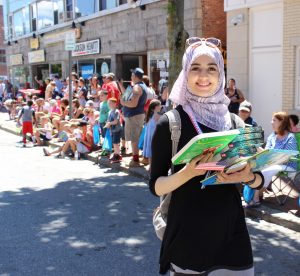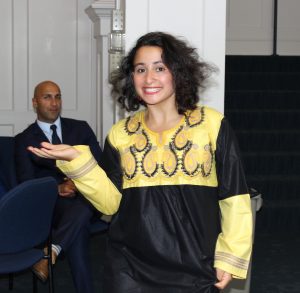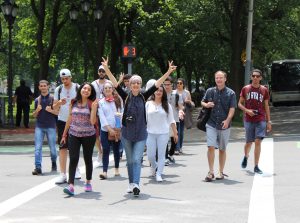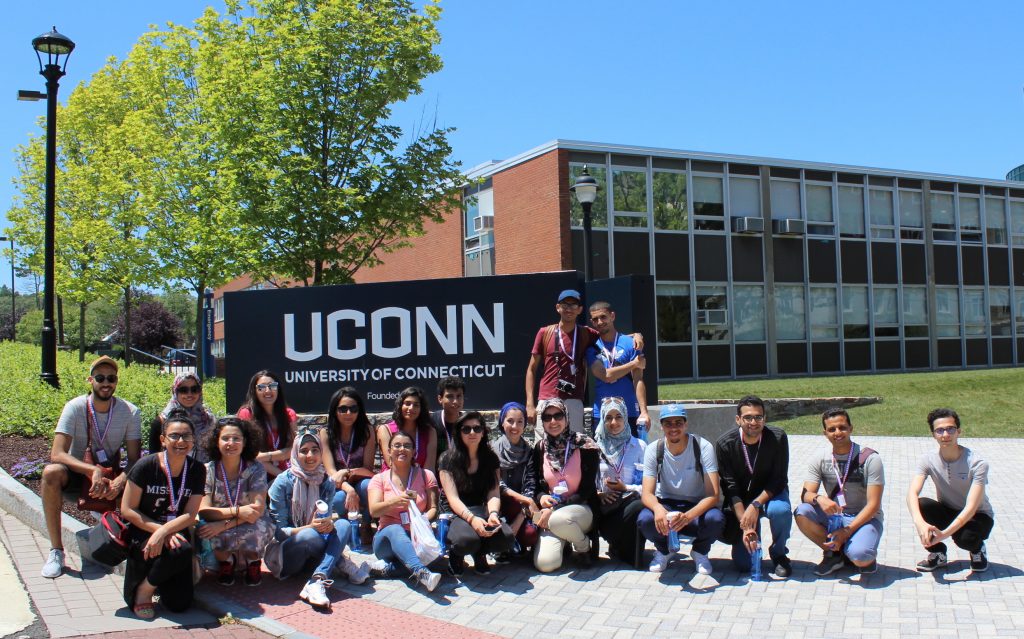Myanmar reporter discovers art of not sleeping in the Big Apple

At the core of any visit to a true 24-hour city lies one very important question: To sleep or not to sleep?
When the sun goes down, these cities show their other side. Gone are the office workers, delivery trucks and kilometre-long traffic jams – night-time is when these cities spring to life with bars, restaurants, clubs, museums and galleries.
Recently, I visited perhaps the most famous 24-hour-city, the city that never sleeps: New York. Being considered somewhat of a sleep addict by my family, I assumed all would be usual and my reputation would get through unscathed. But by the end of my two days in the Big Apple I had only slept for six hours.
That’s not because I was drinking huge cups of Starbucks’ coffee (in the US they sell a 916 millilitre cup of coffee), it’s because sometime soon after arriving, my circadian rhythm switched settings from Yangon to New York. I simply forgot to sleep.
At night New York lights up. Most of the high-rise buildings in New York City are, on average, more than 38 floors high with the highest being the 104-floor One World Trade Center. At New York’s beating heart, Manhattan Island, these luminescent canyons of steel and concrete go as far as the eye can see.
While not being a terribly confusing city to navigate, I felt the best way to get one’s bearings would be to see it from up from high. Good thing New York’s not short on tall buildings. I decided to head to the tallest building in the city, the Trade Centre, but when I arrived I was shocked to see that hundreds of other people had the same idea.
The strangest thing about New York is how crowded it is. During the day, Yangon is crowded. But at night-time, many parts of the city look like a ghost town. Not New York. You’ll see almost as many people out during the day as you will at night. It means, even though you’re in a foreign city, you’ll never feel alone. It’s always very easy to find someone to start up a conversation with. People are always eager to find out where you come from and what your story is.
But this time I decided that rather than wait for hours in line I would move on to another attraction. The world famous Museum of Modern Art (MoMA) gives free admission after 4pm.
It seems, people in New York, like in Yangon, love free stuff. I have never seen the kinds of crowds I saw that evening at MoMA. Thousands of visitors on every single floor. MoMA boasts some of humanity’s greatest artistic works, but I can tell you half a Warhol’s not nearly as good as a whole one. With all the clicking of shoes reverberating off the shiny wooden floor, those iconic dripping clocks from Dali’s ‘Persistence of Memory’ took on a more literal meaning. Under normal circumstances, one could spend more than a few hours meandering through MoMA. But with the crowds it felt more like I was waiting for a bus on Mahabandoola Street after work.
Thankfully the other great thing about New York is its food stands. Unlike in Yangon where people always find a place to sit, be it on a trishaw or a small plastic stool, New Yorkers don’t sit. They eat their food quickly, usually standing and with one hand. While the ubiquitous New York pizza slice can be purchased from street stands and corner stores for as little as US$2 at anytime, day or night, I was shocked to see the popularity of Middle Eastern-style cuisine.
There are halal street food stands all throughout the city selling trays of sliced beef and chicken with rice, salad and sauces. The spiced meat has a similar flavour profile to Burmese curry — so naturally this was my meal of choice. The kebab is universally adored but who would’ve thought that New Yorkers loved their biryani or danbauk so much? There were always 5 to 10 people crowded around these stands munching down plates of the spiced rice. Someone needs to tell Nilar biryani to seriously consider expansion into the Big Apple.
New Yorkers don’t just eat quickly. They walk quickly and talk quickly too. You won’t get stuck behind a pair of umbrellas on a New York sidewalk. While it can be overwhelming at first for someone from a city as laid back as Yangon, the rapid speed of the city soon gets your adrenaline going. It wasn’t long before I found myself moving at a brisk walk with my eyes to the pavement only looking up to scream “Ey! I’m walkin’ ‘ere” at yellow taxis.
That taxi driver was probably an Iranian, or Punjab, or Polish; perhaps New York’s most endearing feature is its diversity. Whether you’re at the base of the Statue of Liberty or eating a slice of pizza in Uptown Manhattan, New York has the ability to feel like it could be anywhere in the world. In 48 hours I heard more languages being spoken than I could count.
My advice: if you’re in New York on a tight schedule, let the rhythm of the city pull you along. You’ll probably be surprised at how much stamina you really have. Otherwise, there’s always Starbucks.
https://www.mmtimes.com/news/mingaladon-jfk.html#.Wjoyaq-enEM.facebook
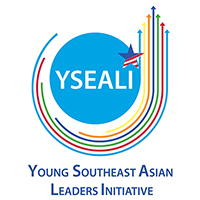

 amme est un rêve (this program is a dream),” says Mondher Tounsi, a law student from Kasserine, Tunisia. He is referring to the Study of the U.S. Institute, or SUSI as it has come to be known, which is funded by the U.S. Department of State’s Bureau of Educational and Cultural Affairs (ECA).
amme est un rêve (this program is a dream),” says Mondher Tounsi, a law student from Kasserine, Tunisia. He is referring to the Study of the U.S. Institute, or SUSI as it has come to be known, which is funded by the U.S. Department of State’s Bureau of Educational and Cultural Affairs (ECA).